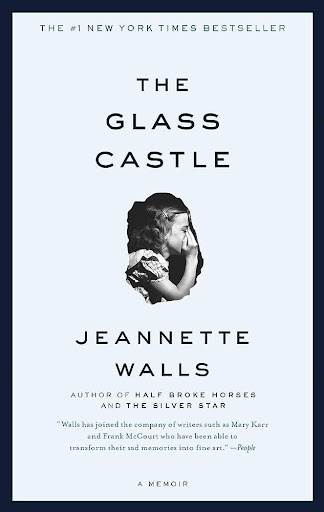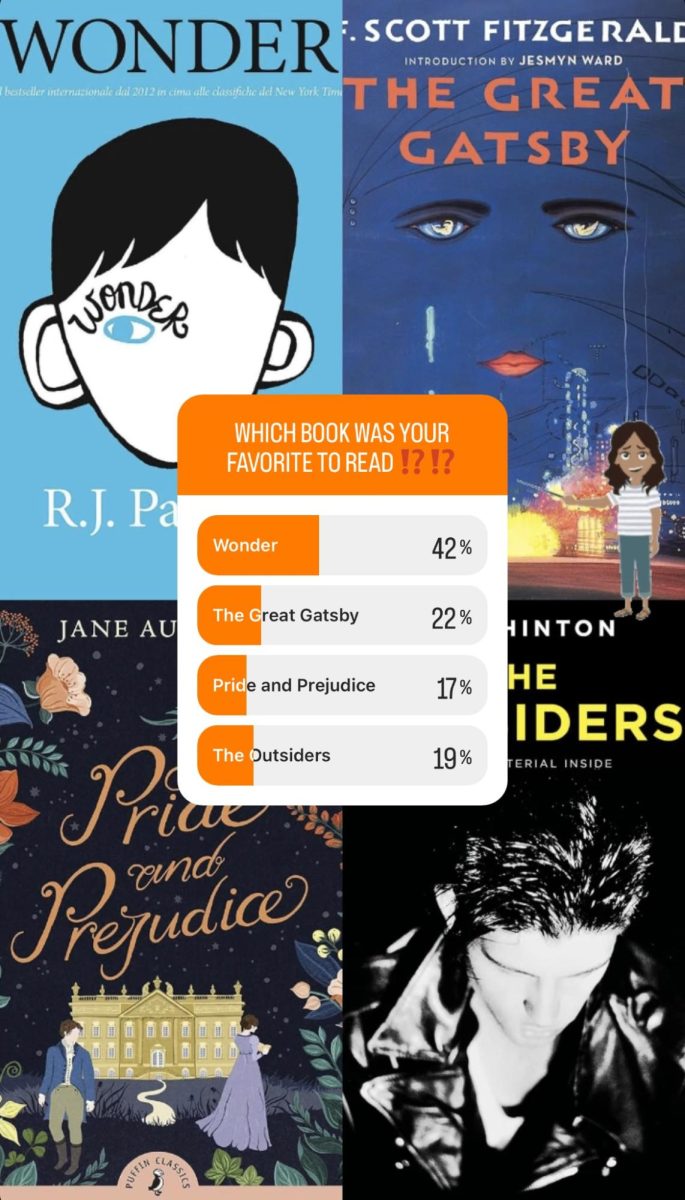Throughout our childhood, English class has always been that one period where our assigned readings transferred us into a different realm. In middle school, books like “Wonder” held our hand through the awkward pre-teen years and reminded us to always “choose kindness.” While in high school, books like “The Great Gatsby” opened our eyes up to adulthood and taught us how if we want closure from our mistakes, we must accept our past as a part of ourselves. Frankly, most of us have taken a sneak peek at SparkNotes or other quick summary sites to get through a reading assignment. But then there are those few rare gems that actually catch our full attention, making us forget about those shortcuts. These mere reading assignments turn into a personal discovery rather than just homework. For Maya Zelinski (12), “The Glass Castle” by Jeannette Walls drew her into a new world of self-realization. When she was originally assigned to read it in the 8th grade, she did just that, but in her freshman year, she revisited the book out of pure interest.
“When I read it again in high school, I remember talking to a couple friends about it and [they] genuinely liked it. I do remember my teacher talking about it and she seemed to really like it,” Zelinski said. “We had like a couple assignments on it and they were entertaining to me; she never really made it boring at all, she seemed to talk about it with interest.”
“The Glass Castle” is a memoir that records the author’s upbringing in a dysfunctional yet independent family. Against the struggles of poverty, Walls narrates her childhood of hunger, homelessness and neglect, but also moments of love and adventure. From her poverty-stricken childhood in West Virginia to her escape to New York City, she pursues a career as a journalist. The book leaves a lingering message of not how one’s hardships define them, but rather their reactions to such hardships that mold their reality.
“It’s not what I’d typically read; it’s written really well and it has a story that really captures the reader because it’s based off the author’s own experiences,” Zelinski said. “To me it’s just the narration … it’s told from the first person and the main character tells the story and the relationships with her family; it goes chronologically throughout her life and there’s actually some points where it’s a frame story, but I imagine when she was writing this she really had to dig deep into her life … it’s interesting to see everything evolve, and especially at the end with a happy ending; it was really nice.”
From Jeannette’s determination to overcome her troubles to the complicated relationships she shares with her siblings and parents, she allows for readers to connect on a more personal level. Walls weaves themes of resilience, family dynamics and the pursuit of the American Dream into each chapter, driving readers through a winding road of heartbreak and hope.
“There’s one scene where the children went to their grandparents house while their parents went out of town or something and they stayed there for a few days and absolutely hated it,” Zelinski said. “The grandma almost sexually assaulted one of the children and she even told their parents how ‘horrible’ they apparently were.”
Now picture another haunting tale; this one of arrogance, corruption and the haunting power of a portrait that continues to age while its subject stays eternally youthful. Audrey Griggs (10), who first delved into “The Picture of Dorian Gray” by Oscar Wilde this year in Mr. Harrison’s Pre-AP English class was hooked by the narrative of beauty, morality and consequence, constantly revisiting the mark left on her imagination.
“At the first point, it was really hard [to read] … but I started getting more motivated around the 30 page mark,” Griggs said. “Dorian started getting more corrupted; I kept wondering … why’s he killing people?’ And I was intrigued by his decision making and his price to pay for beauty.”
With blood dripping from the title character’s hands and other characters slowly losing themselves, “The Picture of Dorian Gray” depicts to readers how moral corruption and human nature slowly intertwine overtime. From Dorian Gray himself, whose greed for eternal youth leads to his eventual downfall, to the morally just Basil Hallward and Lord Henry Wotton, the characters evoke both fascination and disgust to readers. Dorian’s bargain with the portrait painter, Basil, and the deterioration of his soul connected to his aging portrait emphasize Wilde’s written journey through the consequences of narcissism and the pursuit of pleasure at any cost.
“The theme of watching out and the idea of wearing a mask [stood out to me], because Dorian is so naive that he had to watch out for his own friends,” Griggs said. “We’re so young, we have to choose who you’re with wisely. You don’t know who people truly are ’cause Dorian Gray is wearing a mask but turns out he’s a killer.”
As Griggs navigates through the rubble of Wilde’s narrative, she offers advice to potential readers, urging them to embrace his creativity and experimentation and carry every word with weight and consequence. We are kept on the edge of our seats, with a cautionary reminder to stay seated, as you may fall into the abyss of twists and revelations.
“I would recommend this book to people that enjoy dark books … At first it is slow, so if you like that type of buildup and you’re shocked at what Dorian is doing then you should read it,” Griggs said. “Don’t be impulsive and watch what you say; it’s a life learner.”
We close the book on our journey through the literature of English class and one thing is for sure: for many people, these stories are not just words on a page, but are a window into a realm of life and experiences. And who knows? Maybe one day when you grow old and shriveled, you’ll pick up one of these books and start reminiscing on the sparks that ignited your love for literature, slowly being reborn through the written word.
“A lot of the books we read are supposed to reflect a large theme, which is great, but sometimes students need something that’s gonna be entertaining,” Zelinski said.





































